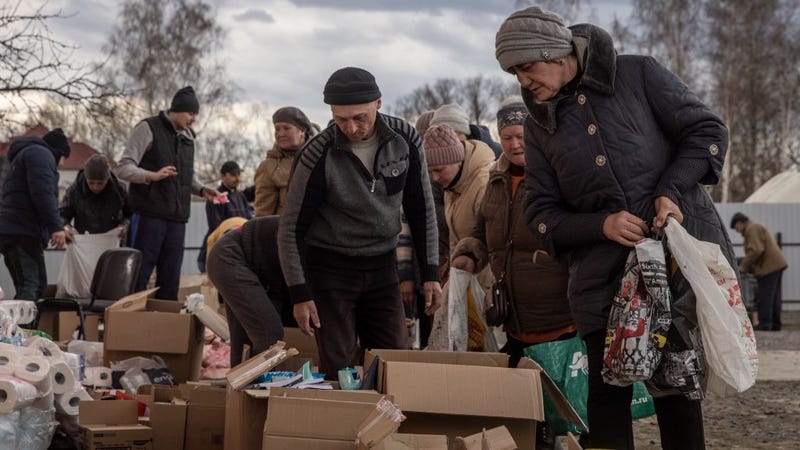
Due to the ongoing Russian invasion of Ukraine, United Nations World Food Program executive director David Beasley said that a global food crisis is increasingly likely.
"Ukraine has only compounded a catastrophe on top of a catastrophe,” Beasley said, according to The New York Times. "There is no precedent even close to this since World War II."
Food prices around the world have increased drastically since the beginning of the war, as now a large number of Ukrainian farmers are fighting to defend their country.
Russian and Ukrainian farmers combine to produce about a 30% of the world's wheat, in addition to supplying 20% of its corn, and more than 75% of the sunflower seed oil, in addition to other similar products, according to the Associated Press.
Beasley said that the U.N. World Food Program has been forced to ration their food for people in need due to rising costs for fuel, food, and shipping. He added that they also buy 50% of their grains from the Ukraine.
Due to these riding costs, Beasley said their monthly expenses will be increased by $71 million, and expect the yearly total to hit $850 million. Prior to the start of the invasion on Feb. 24, he said that the World Food Program feeds about 125 million people per day.
There will be 3.8 million less people helped because of the increased costs, Beasley said. He went on to say that the agency is currently helping about a million people in Ukraine, and aims for more in the next three months, reaching a total of 6 million by the end of June.
"We’ll be taking food from the hungry to give to the starving," Beasley said.
U.S. Deputy Secretary of State Wendy Sherman pointed out that there are many countries that rely on Ukraine's grains for their food supply, and now they are in danger.
"We are particularly concerned about countries like Lebanon, Pakistan, Libya, Tunisia, Yemen and Morocco which rely heavily on Ukrainian imports to feed their population," Sherman said.
David Laborde, a senior research fellow at the International Food Policy Research Institute, expressed a similar message last month, highlighting how impactful the Russia Ukraine conflict will be on countries around the world if farmers aren't able to harvest this year.
"By then, if farmers could not harvest due to lasting military operations, or if port facilities and railroads have been damaged, the situation will be particularly gloomy," Laborde said to The New York Times. "Many countries in North Africa and the Middle East are particularly dependent on wheat from Ukraine and Russia and likely to be hard hit."


